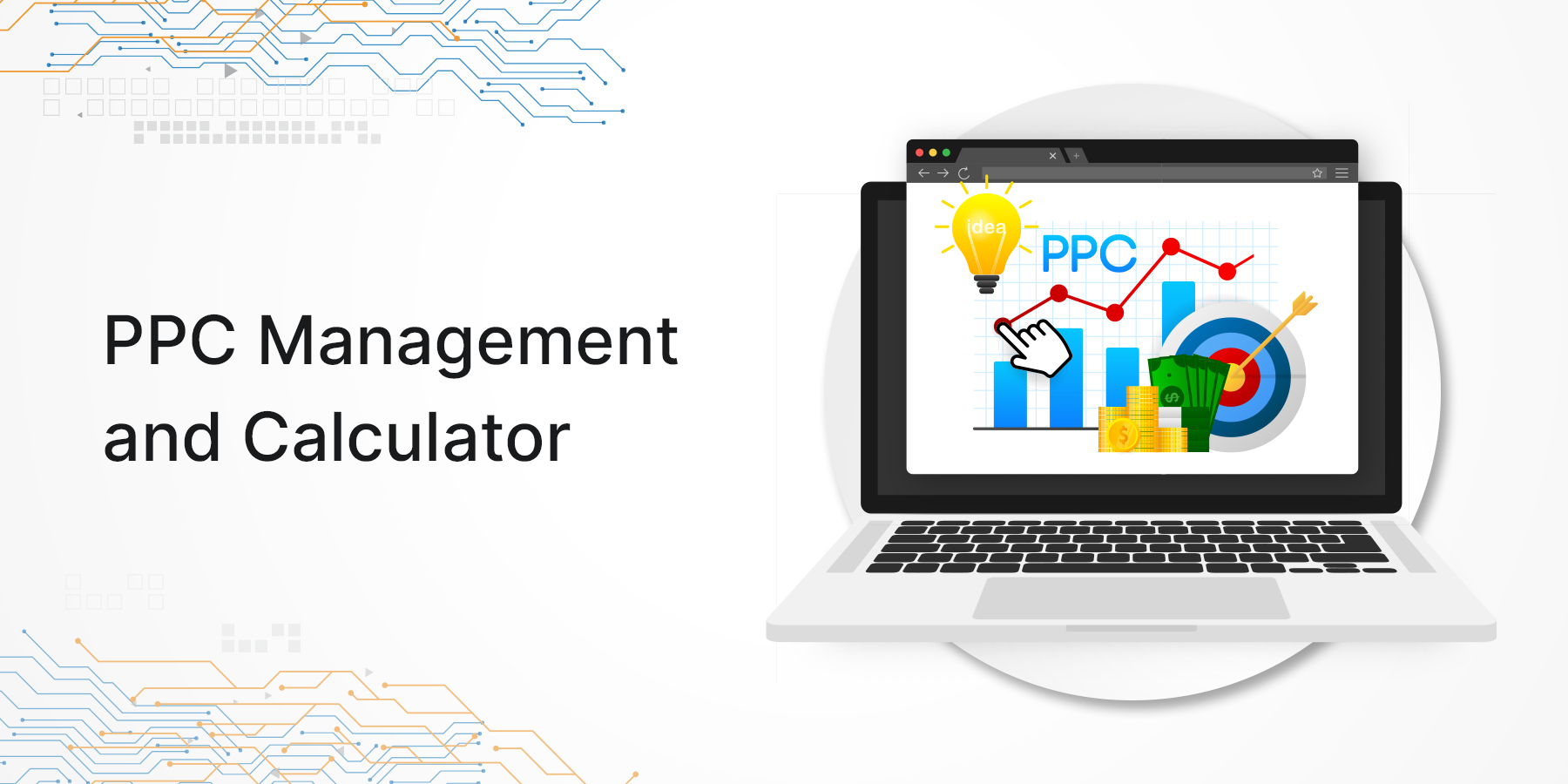PPC Management for Startup Business: How PPC Calculator Will Help You?
In the pay-per-click online advertising model, the advertiser reimburses Google each time a user clicks on their ad. In other words, it’s a method of boosting website traffic. When someone searches for cleaning services in your area, for instance, your ad will be at the top of the SERPs if you bid on the keyword “commercial cleaning company.”
The quality of your keywords, the landing page, the maximum bid amount, and other factors all influence how well your PPC campaigns perform. You have to give Google (or the other ad network you’re using) a small sum of money each time someone clicks on your advertisement and goes to your website.
You must generate leads and close sales quickly to survive in a cutthroat industry as a small business owner. When getting results quickly is your top priority, paid advertising is the perfect answer.
Five Guidelines for Creating a PPC Ad Budget
1. Choosing Keywords for Your Advertisement
What keywords do prospective customers use to search for your good or service? Some people may find this relatively simple, such as those who run an online store or sell only a few interests.
When your product is a solution to a technical problem, finding the answer to that question becomes much more challenging. Consider the question, “How can I track the effectiveness of my marketing dollars?” or “What dog food is the healthiest?”
Your initial focus should be on keywords that convey a prompt desire to buy. These search terms will have a higher click-through rate and conversion rate because, for instance, “Buy blue cowboy hat” has more immediate intent than “Cowboy hats.” Start with high-intent keywords when creating a keyword list for various ad groups and experiment with higher-funnel, low-intent keywords when you’re ready to scale your operations.
2. Trends in Research Search Volume
One of the most crucial steps when considering running a PPC campaign is conducting thorough research. Your chosen keywords’ search volume, or how many people are looking for your product at any given time, will determine how often your ads appear. Without enough search activity, Google won’t even display your ads.
Lower search volumes can frequently be advantageous, particularly for small businesses, as they typically mean lower costs and little to no competition. This may imply that creating a campaign to guarantee you always appear for these search terms is feasible and profitable. High search volume frequently indicates high costs and competition, so you’ll probably need a more considerable initial investment to start.
3. CPC (Cost Per Click) Research Estimates
You’ll find cost-per-click estimates while researching the search volume of your keywords (using Google Keyword Planner, for instance). These are rough estimates of how much you’ll pay each time one of your ads is clicked. As previously mentioned, a high search volume is frequently accompanied by a high cost per click. Though not always a bad thing, this. You can determine whether investing in getting these clicks will be profitable if you have access to enough data. Calculating profitability will be covered in more detail later.
4. Identify the Regions That Are Important to Your Business
This will vary depending on the business, but if you’re a local business, it’s probably in your best interest to focus on a small area immediately surrounding your establishment. Perhaps a nearby community has a particular demographic that your products mainly well serve. On the other hand, using geographic targeting to start with a smaller area, then expanding your campaign based on success can frequently be a good strategy for scaling your campaigns profitably if your objective is to run a nationwide campaign.
5. Run Advertisements for Your Company and Industry at Specific Times
Restricting the time frame during which your ads are displayed to only the most lucrative hours of the day is a great way to increase your campaign’s revenue once you have been operating it profitably with a clear return on investment. Does your company want to increase calls in addition to website visitors and online sales? Consider setting call-only ads or call extensions to only run during times when your phones will be operated.
Will PPC Bring You Any Financial Gain?
After doing your research, it appears that a few keywords are reasonably priced for your product and that a sizable number of people search for those keywords each month. Analyzing your products, clients, and website analytics is the next step. When considering products, some businesses also consider the average order size. Others might interpret it as lifetime customer value. The lesson here is that regardless of whether it costs $30 or $3,000 to bring one potential customer to your website, you must understand its value.
The next step is to review your website analytics to ascertain your conversion rates or the rate visitors become paying customers. How frequently do new website visitors convert to customers or purchase from you? The more we can afford to spend on bringing traffic to the site, the higher the rate of purchase and the higher the ticket price on a single sale.
For instance, if we know that our website’s average order value is $100, clicks cost about $1, and our conversion rate is 2%, then we can estimate that for every 50 visitors we bring to the site, one will make a purchase. If our margin is already factored into the average order size, our profit for those 50 clicks will be $50. However, if we can raise our conversion rate to 7%, we will receive an average of 3.5 purchases for a total of $350 in sales and $300 in profit.
PPC Calculator and Financial Advice
After determining that your campaign will be profitable, you can continue your calculations and begin to consider what a reasonable budget would be.
Let’s say, for instance, that you discovered using the Google Keyword Planner that 5,000 people, using various keywords in their searches, look for products similar to yours each month. Let’s also assume that those search terms had an average cost per click of just $1.
Additionally, let’s hazard a guess at the typical click-through rate for these keywords – the rate at which people will click your ad when they see it on the page. When calculating a click-through rate, you can refer to charts and websites that provide averages per industry. Now, with 5,000 monthly searches at $1 per click and a CTR (click-through-rate) of 5%, for example, you could anticipate spending about $250.
That seems straightforward enough, but remember that all of these figures can differ significantly, from clicks costing more than $25 to CTRs that are above and below 10%. However, the beauty of PPC is that you can continuously monitor all these variables and only spend money on clicks and keywords that you are sure will be profitable.
How Much Should You Invest in PPC?
The correct response is: “As much as possible, provided that you continue to be profitable.” Why slow down if your campaigns generate more revenue than they cost?
You can start by using the advice and our calculator to at least get an idea of how much you could spend and whether you even need to try.
Moving on, You can get in touch with Vgrow Solution if you require assistance with pay-per-click management. The experts will recommend the most effective strategies for your business based on the requirements.

Nandhini A
Nandhini A, with over 15 years of experience, currently serves as a Relationship Manager at Recruit Ninjas. Her expertise includes driving business process success, leading operations, and team development. She excels in optimizing efficiency and productivity, driving sales, and fostering high levels of customer satisfaction and retention.
Author
Nandhini A
Nandhini A, with over 15 years of experience, currently serves as a Relationship Manager at Recruit Ninjas. Her expertise includes driving business process success, leading operations, and team development. She excels in optimizing efficiency and productivity, driving sales, and fostering high levels of customer satisfaction and retention.





